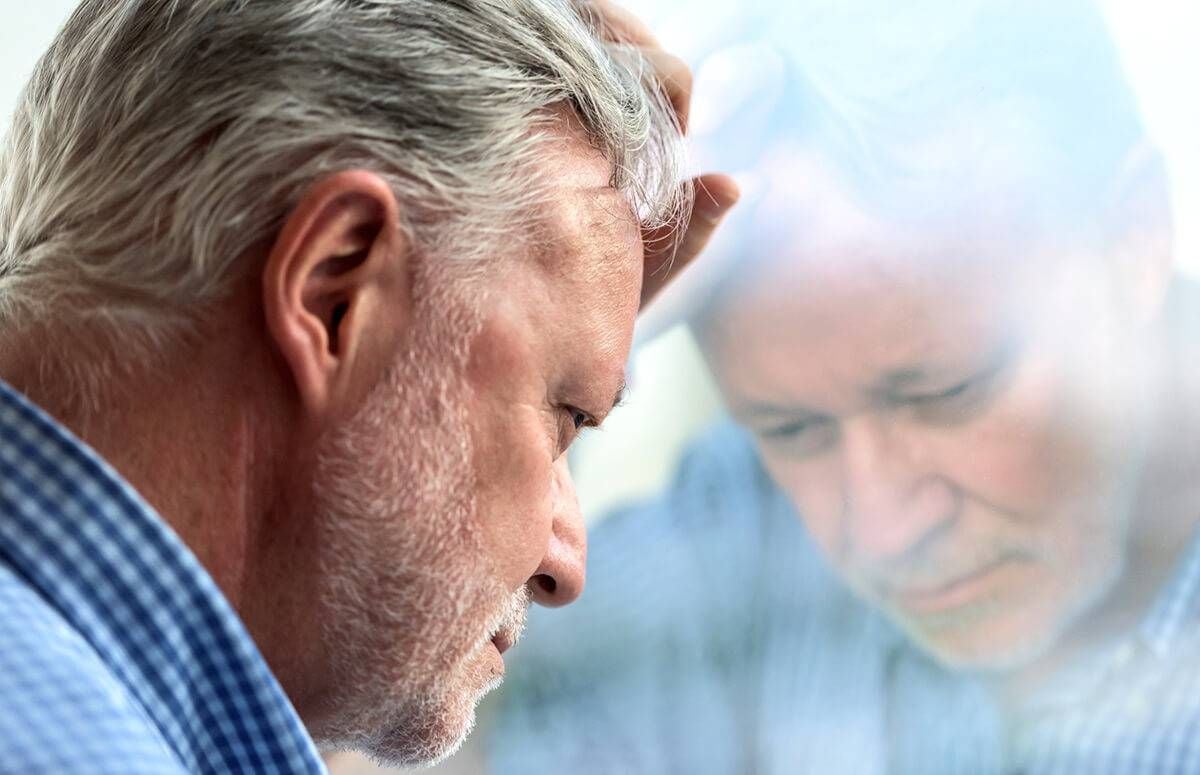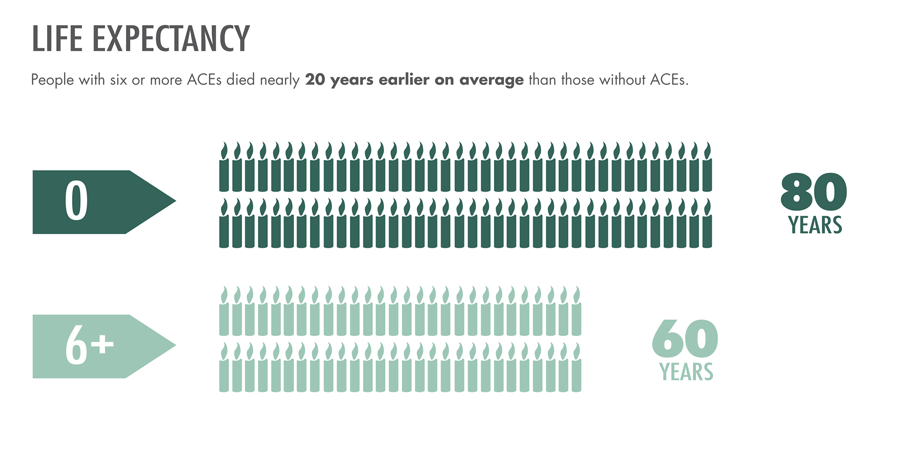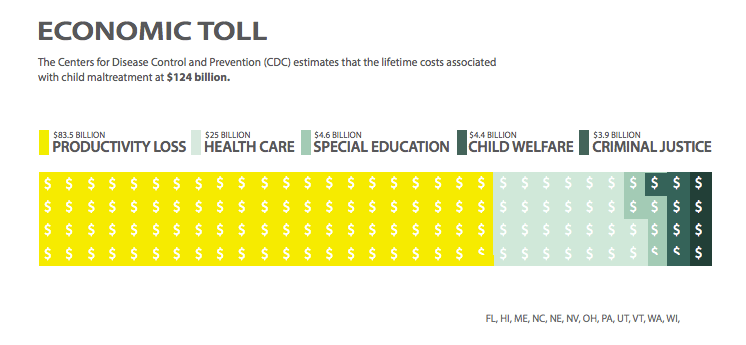Childhood Trauma Effects Often Persist Into 50s and Beyond
Childhood abuse raises the risk of serious mental and physical problems later
The responses to an open-ended online survey question were heart-wrenching.

“Those five years ruined everything. My self-identity is sad, melancholic, shy, retiring and angry… never content or at peace.”
“It has hampered me all my working life.”
“Problems with relationships with the opposite sex my whole life made me think something was wrong with me.”
“I will never know the person I could have become....”
Lasting Scars of Childhood Sexual Abuse
All of those comments were made by adult men who had experienced sexual abuse at the hands of clergy, particularly priests, when they were children. Collected as part of a 2010 survey, they illustrate the insidious harm that can follow individuals throughout their lives when they are badly hurt — physically or emotionally — as children.
(See below for a video of one such man.)
Childhood sexual abuse is just one type of early trauma that can affect one’s life for decades — even into middle age and beyond. Research has shown that childhood trauma, ranging from parents’ divorce to alcoholism in the home, increases the odds of heart disease, stroke, depression, suicide, diabetes, lung diseases, alcoholism and liver disease later in life. It also increases risky health behaviors like smoking and having a large number of sexual partners. And it contributes to “low life potential,” according to the U.S. Centers for Disease Control.
One more thing: those traumatized as children die earlier.

Childhood Trauma: Too Much to Handle, Too Soon
From 1995 to 1997, the health maintenance organization Kaiser Permanente in California conducted a survey of more than 17,000 of its patients.
The “Adverse Childhood Experiences” or ACE study asked respondents to indicate whether they had suffered any of the following during their childhood:
- Emotional abuse
- Physical abuse
- Sexual abuse
- Mother treated violently
- Household substance abuse
- Mental illness in household
- Parental separation or divorce
- Household member in prison
A portion of the respondents were also asked about emotional and physical neglect. The most common experience reported was physical abuse (28 percent), followed by household substance abuse (nearly 27 percent).
The more Adverse Childhood Experiences a person reported, the higher the risk of experiencing poor psychological and physical health later.
A 2010 update found similar results.
Paralyzed with Shame
Jim McDonough, 61, was a happy, inquisitive kid who earned excellent grades and loved the outdoors. A lifelong resident of St. Paul, Minn., he joined the Boy Scouts when he was 12, attracted by the prospect of frequent camping adventures.
But those camping trips soon became terrifying. The scoutmaster, on the pretense of separating a boisterous group, brought McDonough into his tent with him. He then sexually abused him. McDonough “froze,” he said. It happened repeatedly for four years (see the video below).
Besides a brief mention to his wife years later, McDonough told no one.
“There’s a lot of shame with that,” McDonough said in an interview. “(I thought) no one will understand this. The shame always comes back to, ‘Was it my fault?’”
https://vimeo.com/194740034
A Secret Until Age 60
Not long after the abuse started, McDonough began sneaking alcohol from his father’s liquor cabinet. He used drugs and booze for years to “kill the pain.” He married his high school sweetheart, but she could not put up with his drinking and the unpredictable bouts of rage.
After she left and they divorced, McDonough cleaned up his act. He went through chemical abuse treatment and the couple remarried. But McDonough, who serves as an elected member of the Ramsey County Board of Commissioners, knew he still had not dealt with the deep wound of the sexual abuse.
“It takes a lot to come to terms with this,” he said. “I worked really hard on myself to be a better person, to really understand who I was.”
On his 60th birthday, McDonough held a press conference: He had filed a personal injury lawsuit against the Boy Scouts of America and the local Boy Scouts council. (A Minnesota law temporarily lifted the statute of limitations for childhood sexual abuse cases.) Coming forward was “putting the shame where it belonged,” he said.
Indeed, the ACE data found that childhood sexual abuse was reported by just 16 percent of males and 25 percent of females. Underreporting of such abuse is common.
The animation below, by Twin Cities PBS in St. Paul, Minn., illustrates the research on adverse childhood experiences.
https://youtu.be/DQR-qU22Sc8
Trauma Hard to Divulge
Adults age 50 and older are far less likely than younger people to reveal a childhood trauma of any kind, said Michael Barnes, clinical program manager at CeDAR, the Center for Dependency, Addiction, and Rehabilitation, at the University of Colorado Hospital in Aurora, Colo.
“I think some of that is generational and the view of counseling,” he said, “and there’s a significant difference between men and women.” Women are more likely to tell others. Men are socialized to be stoic and not complain, Barnes said. He estimated that 30 to 90 percent of the patients seen at his addiction program on any given day had some sort of childhood trauma.
Scott Easton of the Boston College School of Social Work has studied how childhood sexual abuse affects men in later life. In one study, which received a federal National Institute on Aging grant, the men who were sexually abused as kids waited an average of 21 years before they told a single person about the abuse. It took them 28 years to give a fuller account to someone else.
“The longer they waited, the worse their mental health,” Easton said.
Emotional Effects in Later Life
Children don’t know how to process a traumatic event or environment, experts say. Those who suffer childhood abuse or trauma often grow to distrust others, having been betrayed by the very adults who were supposed to teach, nurture and protect them, according to the Australian abuse support group Blue Knot Foundation.
A study of more than 21,000 child abuse survivors age 60 and older in Australia found they reported a greater rate of failed marriages and relationships. Abuse survivors were more likely to rate themselves “not happy at all” or “not very happy.” They attempted suicide at a rate four to five times higher than those who had not been abused.
Others with a history of child trauma may later experience problems such as these, according to experts:
- Anxiety
- Sadness and depression
- Hypervigilance
- Drug or alcohol abuse
- Addiction to gambling or shopping
- Feelings of alienation
- Feelings of hopelessness
- Low self-esteem
- Adult relationships with abusers
Another common trait among trauma survivors is the need for control, Barnes said.
“Control can look one of two different ways: ‘I'm going to control everyone and everything around me, so I can feel safe,’ or ‘I'm going to withdraw from everything and control by not participating,’” Barnes said. “So for a lot of older folks, they are underemployed (or) they may work in very independent kinds of work.”
Healing Is Possible
It’s important to remember that not even adults are good at dealing with the powerlessness of traumatic events, much less children, Barnes said.
But there are a number of therapies and tools that can help trauma survivors. Barnes has seen great strides in mindful meditation as a later-life treatment for early trauma. Dialectical behavioral therapy (DBT) techniques and cognitive behavioral therapy may also help, he said.
Coping strategies also include taking good care of your health, seeking joyful activities and learning a new physical skill, Blue Knot Foundation says. The group also recommends learning distress tolerance (or how to soothe oneself) and arousal-reduction tools (taming anxiety and anger).
This self-help guide from the Substance Abuse and Mental Health Services Administration offers additional suggestions for dealing with trauma.

Credit: Centers for Disease Control and PreventionThis article was written with the support of a journalism fellowship from New America Media, the Gerontological Society of America and the Commonwealth Fund.


